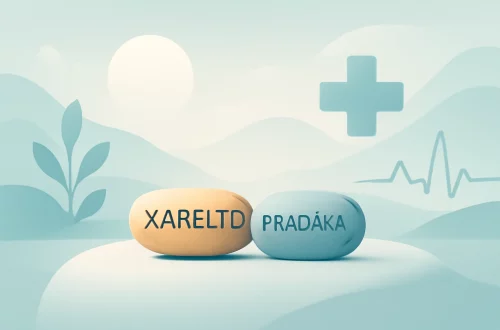
Can Goats Have Carrots in Their Diets Safely and Healthily?
Goats are fascinating creatures known for their curious behavior and playful nature. They are often seen as hardy animals, capable of thriving in various environments, from lush pastures to rugged terrains. As a result, many goat owners are dedicated to providing the best possible care for their furry friends, including a balanced and nutritious diet. Understanding what foods are safe and healthy for goats is crucial, as it directly impacts their overall health and well-being.
One food item that often sparks curiosity among goat owners is carrots. These vibrant orange vegetables are not only appealing to the eye but also packed with nutrients that can benefit many animals. However, when it comes to goats, the question arises: can they safely include carrots in their diets? This inquiry leads to a deeper understanding of goat nutrition and the potential benefits or risks associated with feeding them certain foods. As we explore this topic, it becomes essential to consider not only the nutritional aspects of carrots but also the individual needs of goats and how to introduce new foods into their diets responsibly.
Nutritional Value of Carrots for Goats
Carrots are a popular snack for many animals, and goats are no exception. These root vegetables are rich in essential vitamins and minerals, making them a potentially beneficial addition to a goat’s diet. Carrots are particularly high in vitamin A, which is crucial for maintaining healthy vision, skin, and immune function. This vitamin can help goats maintain their overall health, especially during times of stress or illness.
In addition to vitamin A, carrots also contain significant amounts of vitamin K, which plays a vital role in blood clotting and bone health. The presence of antioxidants in carrots, such as beta-carotene, can help combat oxidative stress in goats, promoting better health and longevity. Additionally, carrots provide dietary fiber, which aids in digestion and can help prevent issues like bloating or digestive upset.
However, while carrots do offer nutritional benefits, they should not be the primary food source for goats. Goats are ruminants and require a balanced diet that includes hay, pasture, and grains. Carrots should be considered a treat or supplementary food, rather than a staple. When feeding carrots to goats, moderation is key. Overfeeding can lead to digestive problems due to the high sugar content in carrots, which can disrupt a goat’s natural digestive processes.
It’s also essential to consider the age and health of the goats when introducing carrots to their diet. Young kids or older goats may have different nutritional needs and digestive capabilities. Therefore, it’s advisable to consult with a veterinarian or animal nutritionist if you’re unsure about how to incorporate carrots into your goats’ diets safely.
How to Safely Introduce Carrots to Goats
Introducing new foods to goats should be done gradually to allow their digestive systems to adjust. Start by offering a small piece of carrot to observe how they respond. Watch for any signs of digestive upset, such as bloating, diarrhea, or changes in behavior. If the goat reacts positively, you can gradually increase the amount offered.
When preparing carrots for goats, always wash them thoroughly to remove any pesticides or contaminants. It’s best to cut the carrots into smaller pieces, especially for younger or smaller goats, to reduce the risk of choking. Whole carrots can be hard for goats to chew, so slicing them into manageable sizes is a safer option.
It’s also worth noting that feeding goats carrot tops (the green leafy parts of the carrot) can be a healthy alternative. These greens are often rich in nutrients and can add variety to a goat’s diet. However, similar precautions should be taken with carrot tops as with the roots; ensure they are clean and free of pesticides.
Remember to monitor the overall diet of your goats when introducing carrots or any new food. Ensure that they continue to receive their staple foods—hay, pasture, and appropriate grains—while treating carrots as an occasional snack or supplement. This balanced approach will help maintain their health and prevent any potential digestive issues.
Potential Risks of Feeding Carrots to Goats
While carrots can provide nutritional benefits, there are potential risks associated with feeding them to goats. The primary concern is the high sugar content found in carrots. Goats have a unique digestive system that is designed for breaking down fibrous plant material, and too much sugar can lead to digestive disturbances. Over time, excessive sugar intake can also lead to obesity and related health problems.
Another risk is the possibility of choking, especially if whole carrots or large pieces are fed. Goats are known for their enthusiastic eating habits, and if they don’t chew their food properly, it can lead to choking or blockages. This emphasizes the importance of preparing carrots in smaller, manageable sizes.
Additionally, some goats may have individual sensitivities or health conditions that make certain foods unsuitable for them. For example, goats with metabolic disorders like ketosis or those prone to urinary calculi should be monitored closely when consuming sugary treats. Always consult with a veterinarian if you suspect any underlying health issues that could be aggravated by dietary changes.
Lastly, it’s crucial to remember that not all fruits and vegetables are safe for goats. While carrots are generally considered safe, other foods may pose risks. Always research or consult with experts before introducing new items to your goats’ diets to ensure their safety and health.
Conclusion: Balancing Treats in a Goat’s Diet
Feeding goats treats like carrots can be a delightful experience for both the goats and their owners. The key to a healthy diet lies in balance and moderation. By understanding the nutritional value of carrots, how to safely introduce them to your goats, and the potential risks involved, you can make informed decisions that benefit your goats’ health.
Goats thrive on a diverse diet that meets their nutritional needs, with hay and pasture forming the foundation. Carrots can be a fun and nutritious supplement if fed correctly and in moderation. Always keep an eye on your goats’ reactions to new foods, and adjust accordingly.
In summary, while carrots can be safely included in a goat’s diet, they should be treated as an occasional treat rather than a staple. Prioritize their overall health by ensuring a balanced diet and consulting with professionals when necessary. This approach will help you provide the best care for your goats, keeping them happy and healthy for years to come.
**Disclaimer**: This article is for informational purposes only and does not constitute medical advice. For any health-related concerns regarding your goats, please consult a qualified veterinarian.




